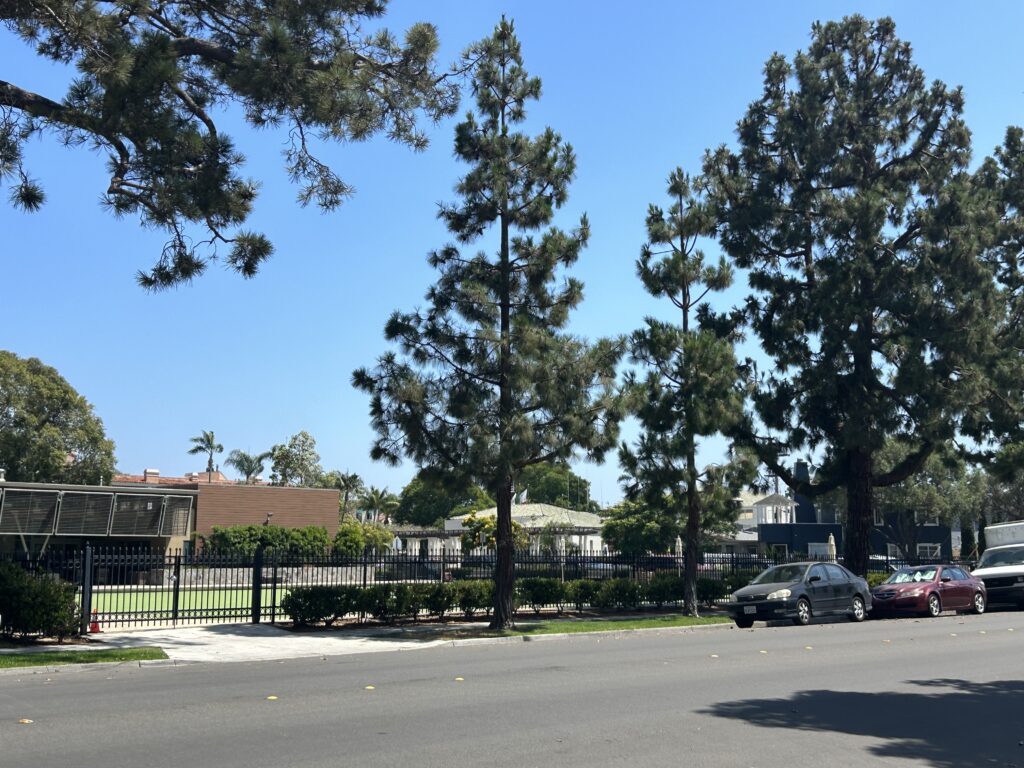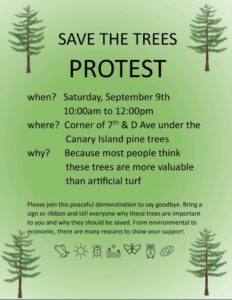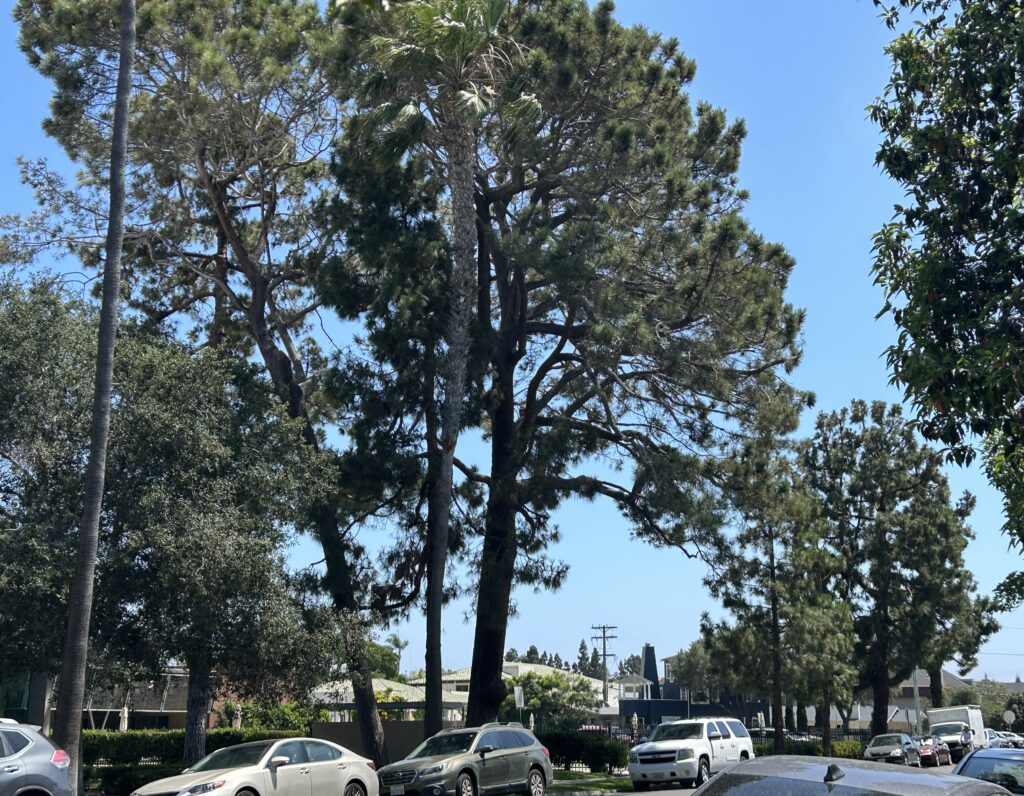
A lawsuit was filed Wednesday seeking an emergency injunction to prevent the City of Coronado from cutting down four Canary Island pine trees and one Torrey pine tree adjacent to the city’s lawn bowling turf.
“We’re speaking for the trees,” said Christine Mott, one of the petitioners of the lawsuit. “This suit reflects the community’s outrage over the city’s planned destruction of five mature and healthy trees – one of which is a 100 year old Torrey Pine, the rarest tree in North America.”
Specifically, the lawsuit accuses the city of violating due process by not giving Coronado residents sufficient notice ahead of its July city council vote to remove them.
The suit also claims that removing the trees violates the city’s Tree Master Plan and that city staff incorrectly declared the trees exempt from the California Environmental Quality Act, which would have required the project undergo the often lengthy environmental impact review process.
Therefore, the lawsuit concludes, approving the trees’ removal without complying with the law qualifies as an illegal use of public funds.
The city “rushed to approve the destruction of these trees (…) without complying with the CEQA and basic due process rights in order to avoid public outcry from the public, the vast majority of which support preserving the trees,” the case’s petition reads.
A protest of the trees’ removal is planned for 10 am to noon on Sept. 9 at the corner of 7th Street and D Avenue.
The Coronado City Council voted to remove the trees at a July meeting. Councilmember Casey Tanaka requested the council reconsider its decision regarding the Canary Island pines after the meeting sparked public outcry, and in August, the council reconsidered but ultimately decided the trees needed to be removed due to puffball fungus growing in their roots that damaged the adjacent lawn bowling green.
The fate of the Torrey pine, a critically endangered species that grows only in San Diego and Santa Rosa Island, was designated unhealthy and is hindering the growth of nearby trees, officials said.

Although the trees’ removal was an agenda item for the council, critics say the item’s title was so vague that residents could not have reasonably known trees were up for debate during the original deliberation.
The item was listed on the council’s agenda as, “Request council direction for a final design and authorize bid advertisement for the lawn bowling green turf replacement project.”
Information about the trees’ removal was available in agenda documents, but critics say residents should not be reasonably expected to read all supporting documents, which can number in the hundreds of pages.
However, mounds from the Canary Island pines’ root fungus first appeared in 2019, and City Council first heard recommendations from staff to remove the trees at a public meeting in February 2021. In June of 2022, council approved a consultant to prepare bid documents.
In the 1979 case of Horn v County of Ventura, courts found that agencies must provide “reasonable notice and an opportunity to be heard before government deprivation of a significant property interest.”
A California Superior Court found Ventura County at fault for approving a map subdividing property adjacent to the plaintiff’s property with insufficient notice. The agency had only posted notice within central public buildings and issued mailers only to those who specifically requested notice. The lawsuit against Coronado alleges that the city violated this legal precedent.
At time of publication, representatives of the city had not yet responded to requests for comment.
“These trees are living symbols of Coronado’s history and provide beauty, shade and a range of environmental benefits,” Mott said, “including a cooling effect on the surrounding sidewalk, asphalt and indoor temperatures, reduction of electrical bills, carbon capture, reduced noise, and reduced air pollution. The trees also provide critical habitat to nesting birds such as herons and egrets and other wildlife.”




